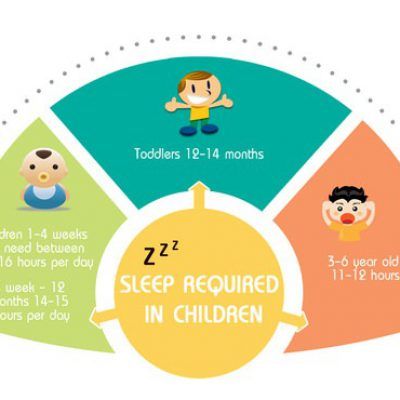
The Importance of Sleep for Children’s Health
- 0
In today’s fast-paced world, where technology reigns supreme, ensuring that our children get enough sleep is more important than ever. As a parent or guardian, it can be easy to overlook the significance of sleep when faced with the demands of daily life. However, sleep plays a crucial role in the overall health and well-being of children. In this article, we will explore the importance of sleep for children’s health and provide tips on how to ensure that your child gets the rest they need.
The Benefits of Sleep for Children
Sleep is essential for children’s physical, mental, and emotional health. It is during sleep that the body repairs itself, and the brain processes and consolidates memories. Lack of sleep can lead to a host of issues, including poor concentration, mood swings, and weakened immune system. On the other hand, getting enough sleep can improve children’s cognitive function, creativity, and emotional regulation.
The Impact of Technology on Sleep
In today’s digital age, children are more plugged in than ever before. The blue light emitted by screens can disrupt the production of melatonin, the hormone responsible for regulating sleep. This can lead to sleep disturbances and difficulty falling asleep. It is crucial to set limits on screen time and establish a bedtime routine that allows for winding down without electronic devices.
Tips for Ensuring Your Child Gets Enough Sleep
1. Establish a bedtime routine: Consistency is key when it comes to sleep. Create a calming bedtime routine that signals to your child that it is time to wind down and prepare for sleep.
2. Limit screen time: Avoid screens at least an hour before bedtime to allow the brain to produce melatonin naturally. Consider implementing a “no screens in the bedroom” rule to promote better sleep habits.
3. Create a sleep-friendly environment: Ensure that your child’s bedroom is conducive to sleep by keeping it dark, quiet, and at a comfortable temperature. Consider using white noise machines or blackout curtains to create a peaceful sleep environment.
4. Encourage physical activity: Regular exercise can promote better sleep by tiring the body and releasing pent-up energy. Encourage your child to engage in physical activities during the day to support healthy sleep patterns.
5. Monitor caffeine intake: Limit your child’s consumption of caffeine, especially in the afternoon and evening. Caffeine can interfere with sleep and make it difficult for children to fall asleep and stay asleep.
Conclusion
In conclusion, sleep plays a vital role in children’s overall health and well-being. As a parent or guardian, it is crucial to prioritize your child’s sleep and ensure that they are getting the rest they need to thrive. By implementing the tips mentioned in this article and creating a sleep-friendly environment, you can help your child develop healthy sleep habits that will benefit them for years to come. Remember, a well-rested child is a healthy and happy child.

